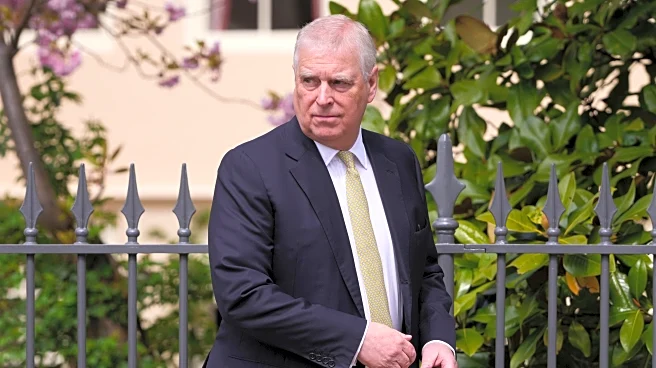What is the story about?
What's Happening?
During Climate Week NYC, discussions centered around the importance of Indigenous food systems and the role of traditional knowledge in building sustainable food futures. A-dae Romero-Briones, Vice President of Policy & Research at the First Nations Development Institute, emphasized that Indigenous foodways are not just historical practices but integral to current and future food systems. The event also featured Riana Lynn, Founder of Journey Foods, who discussed the use of AI and other technologies to create socially just supply chains. The focus was on the intersection of food systems, technology, and Indigenous knowledge.
Why It's Important?
The recognition of Indigenous food systems as vital components of sustainable food futures underscores the need for inclusive approaches to food policy and innovation. Indigenous knowledge offers valuable insights into sustainable practices that can address current challenges in food security and environmental sustainability. By integrating these perspectives, stakeholders can develop more holistic and effective strategies for food system transformation. The involvement of technology in these discussions highlights the potential for innovative solutions to enhance food access and sustainability.
What's Next?
As global food systems face increasing pressures from climate change and population growth, events like Climate Week NYC provide platforms for collaborative action and dialogue. Future initiatives may focus on strengthening partnerships between Indigenous communities, policymakers, and technology innovators to advance sustainable food practices. Continued advocacy for Indigenous representation in food system leadership will be crucial for ensuring that these perspectives are integrated into broader policy frameworks.
Beyond the Headlines
The emphasis on Indigenous food systems during Climate Week NYC reflects broader cultural and ethical considerations in food policy. Recognizing the importance of Indigenous knowledge challenges conventional narratives about food systems and encourages a reevaluation of who holds power and influence in these discussions. This shift may lead to more equitable and inclusive food policies that prioritize community health and environmental stewardship.















